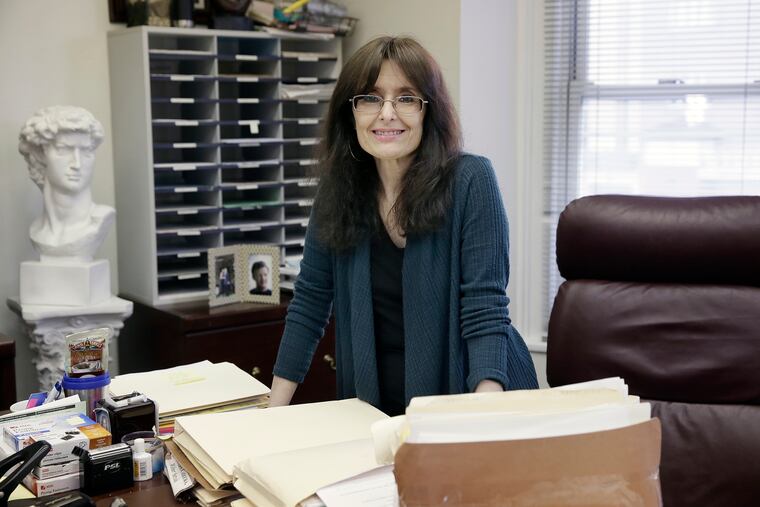We need to question narratives of victimization | Women’s Month 2019
While I reject the label of feminist as being too exclusionary, I was taught to celebrate my identity by women who were proud of their own.

For this year’s Women’s History Month, the Inquirer asked five Philadelphia women at different life stages — a Generation Zer, Millennial, Gen Xer, Baby Boomer, and member of the Silent Generation: What’s the biggest issue facing your peer group right now?
Men were always a part of my life growing up, but women were front, center, and at the core. All of the most memorable characters in my orbit were female. My mother was a strong-willed Italian who raised five children on her own after her husband died at 43. My grandmother, her mother, left school in the third grade so she could help support her first-generation family of 10. Both women had to deal with the suicides of beloved men, in my mother’s case her son and in Mom Mom’s case, her father. Though they mourned, they did not complain.
I attended all-girls’ schools for 12 years, and learned independence from the Mercy nuns. They were fierce, outspoken, sometimes impatient and uncompromising, but always strong. So strong that, when I happened to spend a summer at Sea Isle next to their retreat house, it was a revelation to see they didn’t have horns or halos under their habits.
Women raised me, shaped me, gave me examples to follow (and not), and made me appreciate the innate power of my gender. While I reject the label of feminist as being too exclusionary, I was taught to celebrate my identity by women who were proud of their own.
That’s why I have such a problem with the institutionalization of victimhood, which has become a theme for women of my generation and beyond. When women started coming out and blaming men for their problems, exaggerating claims of abuse or sexism or disrespect, I thought back to my mother and grandmother and all the amazing teachers in my life and couldn’t remember one of them who allowed me to wallow in a sense of grievance.
To me, the #MeToo movement weaponized the anger and hurt that many women felt at being discounted and undervalued. But instead of teaching women to triumph in the ways that my widowed mother, my uneducated grandmother, and the holy sisters did, advocates of this movement have turned being a victim into a badge of honor, or sometimes a sword.
That is the exact opposite of what I learned from my beloved personal matriarchy. Because I am convinced that women are powerful creatures with infinite capacity to adapt and triumph, I hope to hear less anger and resentment, and more optimism and gratitude for the pinnacles we’ve reached.
Christine Flowers is a columnist for the Daily News and Inquirer and an immigration attorney. She belongs to the Baby Boomer generation, born between 1946 and 1964.